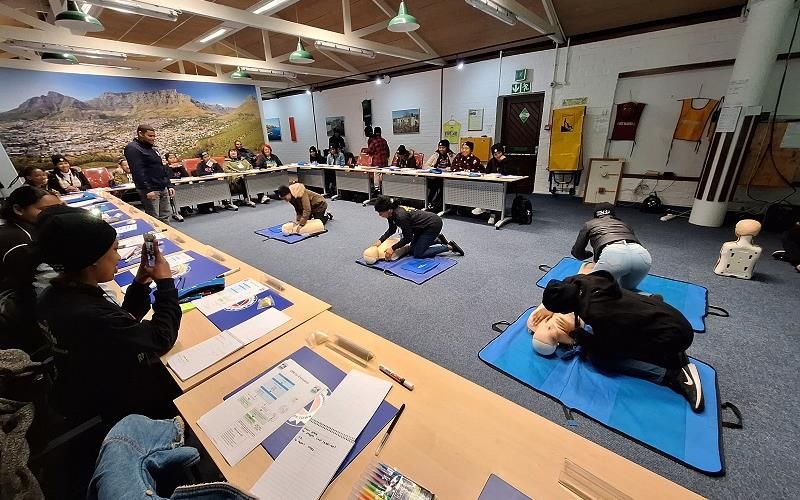The Disaster Risk Management Centre (DRMC) in Sarepta has been changing the narrative for many young women in the city. Through its annual program, “Women & Girls: (In)visible Force of Resilience,” the DRMC equips secondary school learners with the necessary tools to become agents of change in their communities.
Recognizing Women and Girls as Essential Players in Disaster Risk Reduction
The “Women & Girls” program has its roots in the 2012 International Day for Disaster Risk Reduction, which celebrated women and girls as essential players in disaster reduction, mitigation, and recovery. This recognition came with an understanding of the obstacles faced by women, including a lack of inclusion and a poor understanding of gender inequality.
Empowering Through Education
This year, 22 Grade 11 students from Sarepta Secondary School are participating in the DRMC’s empowering program. Through various modules, including disaster management concepts, leadership skills, conflict resolution, and climate change adaptation, the young women are being introduced to a range of skills that will enable them to think differently about their environment and their role in protecting their communities.
Hands-On Experiences Building Confidence and Competence
In addition to theoretical learning, the program offers practical, hands-on experiences that build confidence and competence in disaster risk management. Activities include a hike in the Helderberg Nature Reserve, First-Aid training, basic firefighting, a self-defense course, and an environmental health program.
Critical Public Involvement
Mayoral Committee Member for Safety and Security, Alderman JP Smith, emphasized the importance of public involvement in disaster management and praised the DRMC’s disaster risk reduction work. He stated that “disaster management is everyone’s business” and that public involvement is crucial for successfully mitigating challenges.
A Force for Change in Communities
The Women & Girls program not only fosters a sense of responsibility among its participants but also encourages them to share their knowledge with their peers, families, and friends. By doing so, these young women become champions for change, spreading awareness and promoting resilience in their communities.
Building a More Resilient Society
In a world where climate change and natural disasters are increasingly affecting our lives, programs like “Women & Girls: (In)visible Force of Resilience” are essential for building a more resilient society. By empowering women and girls in Sarepta, the DRMC is laying the foundation for future generations to adapt and overcome the challenges posed by a rapidly changing world.
The “Women & Girls” program is a shining example of how education, practical experiences, and a focus on inclusion can create a powerful force for change. Investing in young people not only strengthens their resilience to disasters but also ensures a brighter, more equitable future for all.








